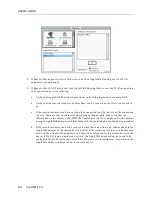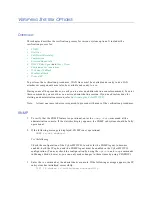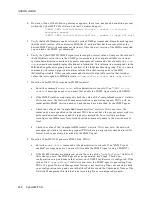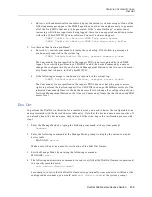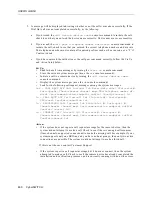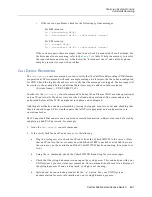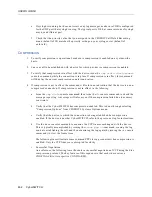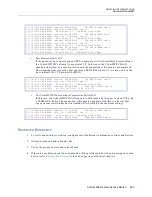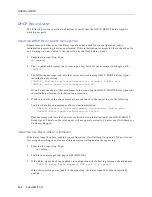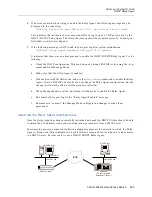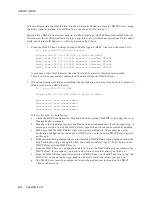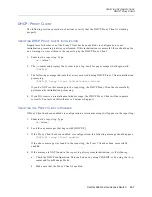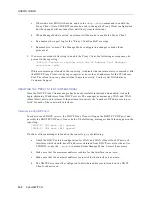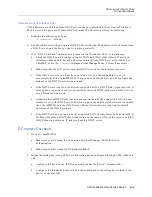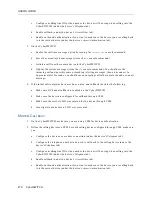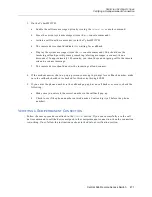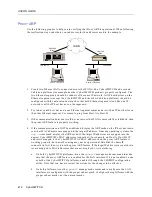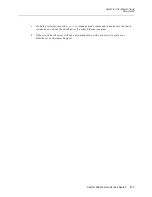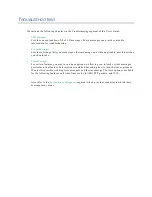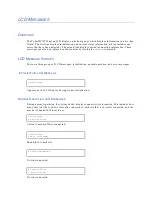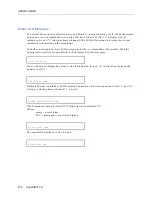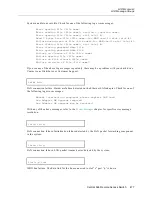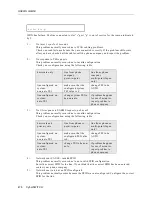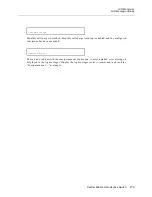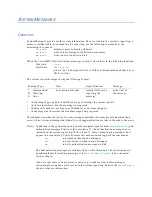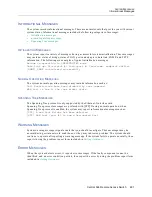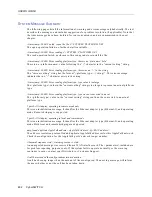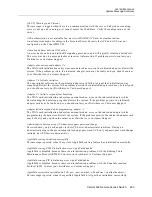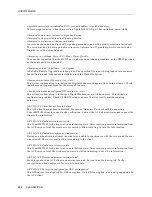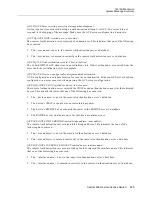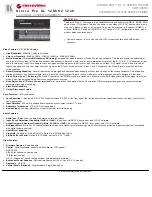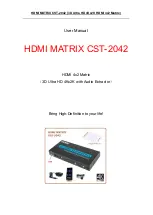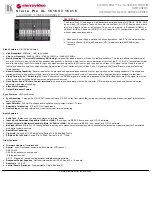
USER’S GUIDE
470 CyberSWITCH
c.
Configure a calling line ID for the number the device will be using when calling into the
CyberSWITCH (under the device’s Telephone tab).
d. Enable callback (under the device’s Access/Other tab).
e.
Enable outbound authentication if you want to make sure the device you are calling back
to is the correct device (under the device’s Access/Authentication tab).
3.
On the CyberSWITCH:
a.
Enable the call trace message option by issuing the
trace on
console command.
b.
Erase the current system messages (issue the
er
console command).
c.
Initiate a call from the remote device to the CyberSWITCH.
d. Display the system messages (issue the
dr
console command). You should see the
incoming call and possibly some proceeding/alerting messages, then a disconnect. In
approximately 10 seconds, you should see an outgoing call to the remote site and a connect
message.
4.
If the initial call completes but never does a drop and callback check for the following:
a.
Make sure D Channel callback is enabled on the CyberSWITCH.
b.
Make sure the device is configured for callback through CSM.
c.
Make sure the correct CLID was entered for the device through CSM.
d. Investigate to make sure a CLID was presented.
M
ODEM
C
ALLBACK
1.
On the CyberSWITCH, make sure you are using CSM for device authentication.
2.
Define the calling devices on CSM. For each calling device configured through CSM, make sure
you:
a.
Configure the device as a modem connection (under the device’s Telephone tab).
b.
Configure the telephone number to be used to call back to the calling device (under the
device’s Telephone tab).
c.
Configure a calling line ID for the number the device will be using when calling into the
CyberSWITCH (under the device’s Telephone tab).
d. Enable callback (under the device’s Access/Other tab).
e.
Enable outbound authentication if you want to make sure the device you are calling back
to is the correct device (under the device’s Access/Authentication tab).

